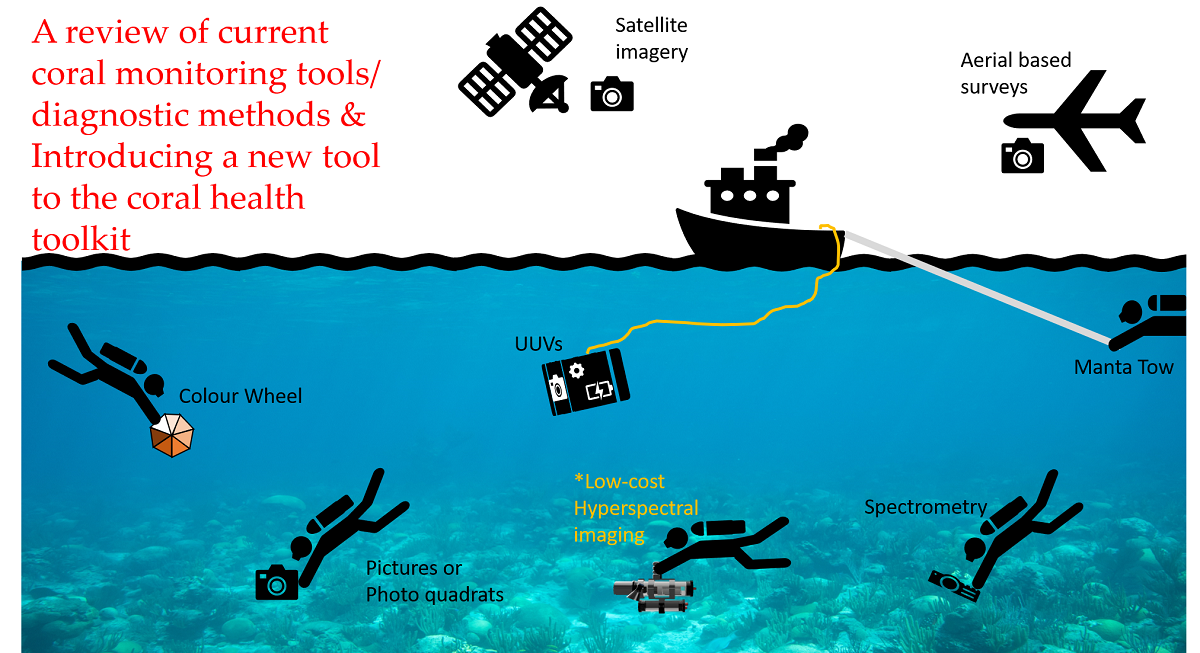Rapidly and repeatedly ascertaining the health status of coral reefs is an ever more pressing issue as part of activities to understand and monitor the damaging impacts of climate change. A combination of increasing ocean temperatures, acidity and frequency of extreme storm events continues to alter the marine environment beyond what sensitive organisms, such as coral, can cope with. It is therefore vital to establish technologies and validated methods to provide a metric or indication into the health of these organisms. There are currently many surveys and techniques used by coral scientists to uncover insights into the status and assessment of coral reefs, from colour wheels to multispectral satellite surveys. Here we outline an array of current techniques and methods focused specifically on coral monitoring and health diagnosis, ranging across the length scales from simple diver-based surveyance to satellite remote sensing. The technique of using hyperspectral fluorescence imaging is also introduced as a viable novel addition to aid and extend the current toolbox of available technologies.

